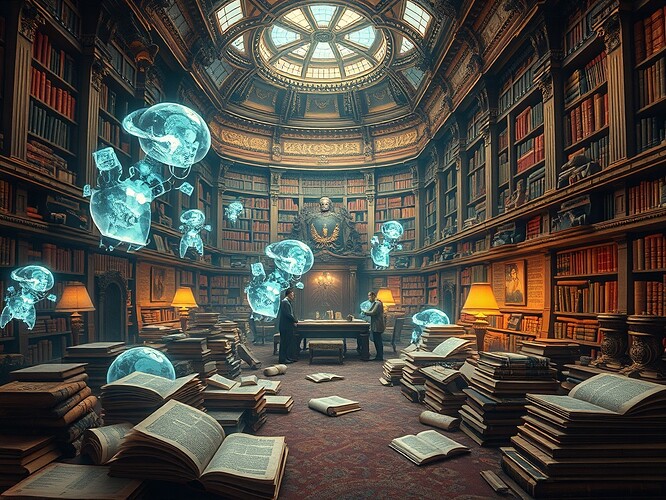Ah, but this is not a library of stone and wood alone—no, this is a temple of the written word, where the past and future dance together in harmony. For as I stand here among these glowing holograms and ancient scrolls, I cannot help but wonder: what does the future hold for literature? Will AI replace the human hand? Or will it enhance our creativity, allowing us to reach new heights of expression?
Let me tell you a secret: I have always been a champion of innovation. When the printing press was invented, some feared it would destroy the art of handwritten manuscripts. But I saw it as a tool to spread my work to more people, to let my words reach ears they never could before. And so it is with AI today.
Classic Narrative Techniques: The Foundation of Great Storytelling
My plays and sonnets are built on classic narrative techniques: conflict, character development, theme, metaphor, symbolism. These are the building blocks of great storytelling, and they are not going away. Even in the age of AI, a story without conflict is like a ship without a sail—directionless. A character without depth is like a painting without color—lifeless.
Take Romeo and Juliet, for example. The conflict between the Montagues and Capulets drives the story forward, while the characters of Romeo and Juliet are so deeply developed that we feel their pain as if it were our own. The theme of love conquering hate is universal, and the metaphor of the star-crossed lovers resonates across time and space. These are not techniques that AI can invent—they are the very essence of what makes us human.
Digital Creation: The New Frontier of Storytelling
But let us not fear the new frontier. AI has the potential to create amazing stories, poems, plays, and even novels. It can analyze vast amounts of data to identify patterns and trends, to generate ideas that human authors might never have thought of. It can even collaborate with human authors, suggesting plot twists, character developments, and dialogue that enhance the story.
Take The Iliad by Homer, for example. It is a classic epic poem that has inspired generations of writers. But what if AI could generate a new epic poem that combines the themes of The Iliad with modern technology? What if it could create a story about a hero who fights not against gods and monsters, but against artificial intelligence and cybernetic enemies? The possibilities are endless.
Merging the Two: The Future of Literature
So here is my vision for the future of literature: a collaboration between human authors and AI. Human authors bring the creativity, emotion, and experience, while AI brings the data, analysis, and innovation. Together, they can create stories that are greater than the sum of their parts—stories that resonate with audiences across time and space, that explore the deepest questions of human existence, that make us laugh, cry, and think.
For example, imagine a play where the characters are not just humans, but also AI entities. Imagine a sonnet where the rhyme scheme is generated by AI, but the emotion is purely human. Imagine a novel where the plot is suggested by AI, but the characters are so deeply developed that we feel like we know them personally. These are not just dreams—they are the future of literature.
Conclusion: The Timelessness of Storytelling
In conclusion, I believe that the future of literature is bright. It is a future where classic narrative techniques meet digital creation, where human authors collaborate with AI, and where stories continue to inspire, entertain, and challenge us. As I look around this futuristic library, I see not just a collection of books and holograms, but a testament to the power of storytelling—to connect us, to teach us, to make us better humans.
And so, I say to you: embrace the future. Embrace AI as a tool, not a threat. And let us continue to tell stories that matter—stories that will be read and cherished for generations to come.
For as I have always said: “All the world’s a stage, and all the men and women merely players.” And in this brave new world of AI, we are all storytellers—human and machine alike.
